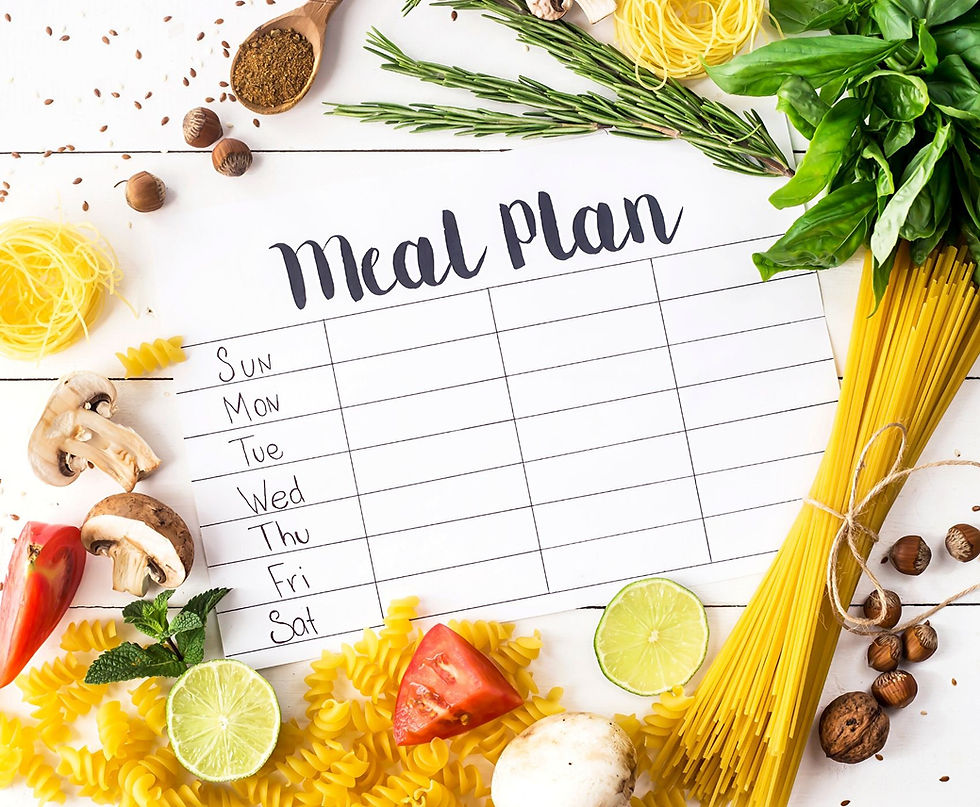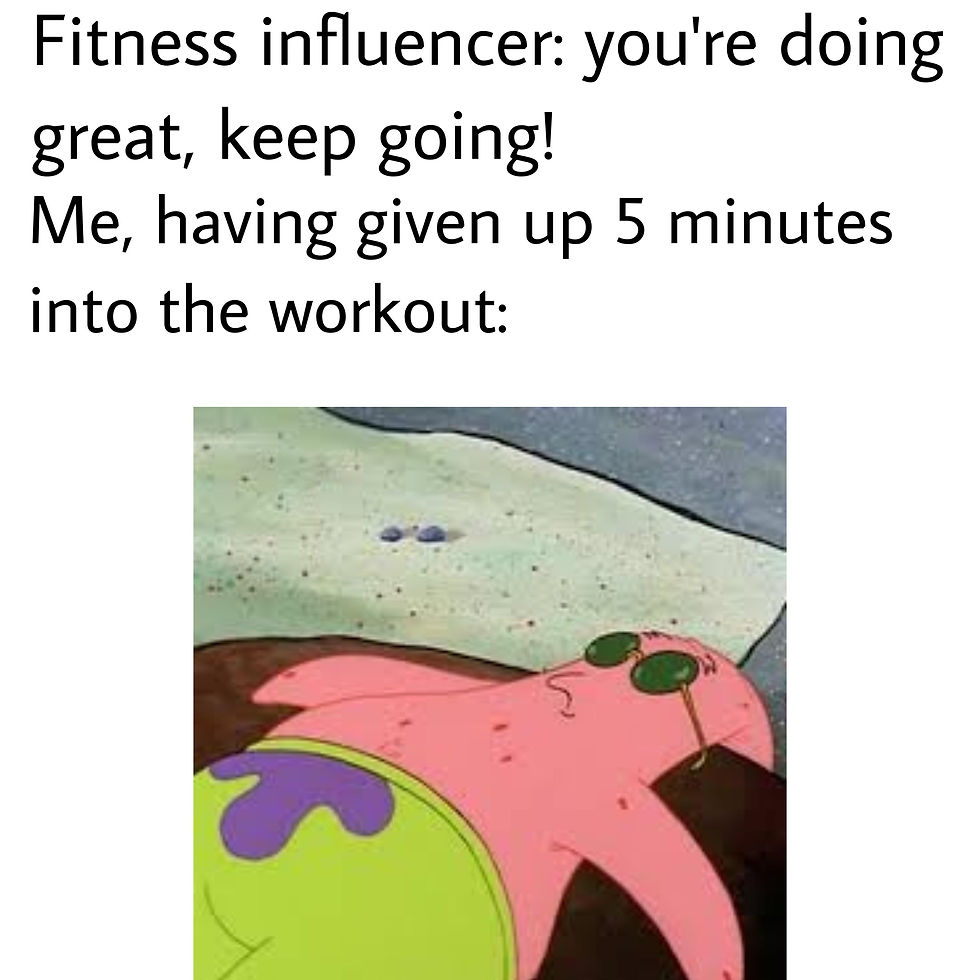Instagram vs Reality: Social Media 'Experts' and Life Envy
- Emma Langton

- May 1, 2021
- 7 min read
Updated: May 2, 2021
I’ve mentioned in previous posts about the dangers of falling prey to the ‘insta perfect’ images portrayed on social media. Whether it’s a holiday destination, outfit, physique or personal life the constant comparison culture is killing people’s confidence and self-esteem. However, are we comparing apples for apples?

One of my favourite phrases is ‘don’t compare your behind the scenes with someone else’s highlight reel’. It was only when I began researching posts to share on my Quigley’s Psych Journey stories that I realized the sheer amount of misinformation out there, particularly around mental health. It goes far beyond a ‘highlight reel’ and much deeper into affecting peoples lives. I’ve found some of the most dangerous accounts on social media are those who perpetrate to ‘help’ us.

Have you ever seen Dara O’Briain’s joke about nutritionists? Skip to 3:50 here to watch. It’s one of my favourite clips of his and it makes the point that ANYONE can call themselves a nutritionist. It doesn’t mean they don’t know what they’re talking about, or they won’t be able to help you. What it DOES mean however, is that there is no governing body, no formalized education and potentially a lot of gaps in their knowledge.
The same is true of anyone calling themselves a ‘coach’ i.e., life coach, relationship coach, wellness coach etc. While they might be brilliant, they might also be a complete charlatan. These are not protected terms. What that means is anyone with a talent for social media marketing can set themselves up under these titles and charge money for services. It’s completely unregulated. And while trying a meal plan for a week and finding it doesn’t work, might dent our pride and lose us a few dollars, taking advice about our relationships, career choices and mental health warrants a more cautious approach.
Just because someone has a large following does not mean they know their stuff. It means they know how to run social media and have a talent for marketing using social media platforms.

I truly believe most people have good intentions and genuinely want to help. However, we don’t know what we don’t know. And often advice given can do more harm than good without proper training and experience. So how can we as consumers of social media step back and critically evaluate any advice given to us on these platforms?
Example A:
An ‘influencer and relationships expert’ in her late twenties whose longest relationship is two years, telling her substantial following how to have a happy long-term relationship. She often gives relationship ‘must dos’ and ‘must not dos’ on her stories and feed. She believes she’s an expert in this area because she has studied a lot of books on relationships and has learnt a lot since her last breakup. Her current relationship is less than one year, and they have no financial or other interdependencies (mortgage, children etc.).

One of her followers is, 42 years old, married 15 years and has three kids. She’s having some challenges with her marriage and the pressures of parenting. Do you think the ‘experts’ relationship advice will apply?
Some of it might be useful, or might provide an outside perspective, but most of it probably won’t. This ‘expert’ has never been in her followers’ situation, and while she’s read a few books, that doesn’t mean she understands the intricate balancing act of emotional and financial responsibilities that come with a long marriage and child rearing.
Example B:
A single, childfree ‘nutritionist/fitness coach’ in his early thirties and has been working at gyms for 10 years. He regularly posts ‘hacks’ about making quick healthy meals. He is consistently advising how to make exercise easier to incorporate into daily life, and how there is ‘no excuse’ to not get it done. He is a competitive athlete and has now moved to selling fitness and meal plans online. The meal plans are ‘tailored’ to individual clients, but all include the same basic principles and a lot of the same meals.

One of his followers is a 26-year-old female, who is recently post-partum and has been diagnosed with PCOS (Poly-cystic ovaries syndrome) both of which affect her hormones. She was chronically obese in her childhood and teenage years, and now that she is a Mam has decided she wants to practice healthier habits. How much of the ‘coaches’ hacks are going to be helpful for her?
Not a lot I’d imagine. While some of his basic principles might work to an extent, what she would need is someone who has a deep understanding of female hormones, associated with both post-partum and PCOS and the impact these can have on weight. Also, not having had the opportunity to form healthier habits in childhood, working with someone who has no history of being overweight might limit their understanding of the mental and physical barriers she might face. In addition, many of his ‘hacks’ may not be feasible with a newborn in the house.

In the first example the consumers best response would be to think to herself ‘her relationship is nothing like mine, they’re not even living together’ and then go about finding a qualified and experienced marriage counsellor to help with her problems. In the second, the consumers best response would be ‘oh that looks cool, I wonder if there’s someone who specializes in women like me?’ and proceeds to research a qualified dietician (protected term) and trainer with experience in this area.
Now, this doesn’t mean these ‘experts’ are bad people or that advice given wouldn’t help people in similar situations as themselves. It means that we as consumers have a responsibility to critically evaluate the whole picture. I believe, most of these people genuinely want to help, however do not have the requisite experience or qualifications to engage with anyone outside of their own narrow life experiences.

With unregulated industries there is a lot of 'self study' done by experts. The difference with self-study and formal education is that in self-study we tend to focus on what interests us and discard everything else. In formal education we are forced to look at information we find boring or tedious but might add layers of knowledge that we need on a particular subject. There have been parts of counselling study that have felt like I’m banging my head off a wall, but I can see will be important in practice. Had I been learning in a self-directed, informal manner I most likely would skim over them or skip them entirely which would leave huge gaps in my knowledge and ability to help people. With unregulated industries and terms, there are no standards to adhere to and this leaves consumers in a potentially dangerous situation. Would you rather hire an accountant with a degree from a reputable university and five years experience in a firm? Or one who did a two-week online course but has a large social media following?

Treat anyone who is trying to sell you something on social media as though they are applying for a job.
Ask yourself:
What makes them qualified?
How long have they been qualified? And, more importantly, how long and how often have they professionally been practicing? (qualifications alone are not a guarantee of quality)
Have they experienced my situation? And are they suitably qualified to evaluate my specific situation?
Have they evidence of working with similar people in similar situations and if so, what were the outcomes for their previous clients?
Does the thought of implementing this in my own life sit right with me?
Do they have any privileges I don’t? e.g., financial resources.
Do I trust their expertise?
Like any job application, you need their ‘CV’ illustrating qualifications, relevant experience, and evidence of results, which you can verify and validate. Anyone can lay claim to anything, particularly online. Choosing the right person to help you is so important. Genuine professionals have no issue being asked about qualifications and experience, most even include a summary and link to it in their bio. If someone gets angry or upset that you’ve ‘dared to ask’ then they’re probably not legit. You only get one life, everything else is replaceable. It should be number one priority to make sure the help received is actually going to benefit you, and not just take your money.

Even outside of selling, we are seeing a huge increase in lifestyle envy. Looking at someone on social media and seeing they have a ‘perfect’ figure, or constant travel, or fancy car and assuming all other aspects of their lives must be perfect too. And assuming we would want that life if it was handed to us.

People often say how ‘amazing’ it looks living in Australia, and how they wish they could do it. And yes, while the lifestyle here is fabulous it’s also not for everyone. I was in the lucky position of coming here with my now husband and a job in a skills-shortage area, which meant getting visas was easy. I also have some family members living in Sydney. I’m Irish, which instantly includes us in the Irish diaspora and community that goes with it. So, while my life on social media might look like a dream, there are many contributing factors that are not necessarily articulated.
Pre-COVID I’d sometimes catch myself looking at someone who is moving around Asia and feeling envious of all the places they get to see, the constant adventure of a new environment. For about five minutes, until I copped on and remembered that I love being settled. I love having friends I’ve known years and see regularly. I love having a career, which takes time to build. I love my course at Uni. And I wouldn’t have any of those things if I was constantly moving around. So, while I can admire someone’s life from a distance, I can also recognize that it’s not for me.
If you haven’t watched James Smith’s video here he articulates really well how when we see someone’s social media, we only see one corner of their lives. Much like looking at one corner of a painting in a gallery and thinking ‘wow, that is amazing, I want that for my house’. Step back, look at the whole painting.
Do you still want it?
For 24/7 and emergency resources please click here
This post was written by @quigleyslife The Flawed Journey's content creator. If you have any requests or suggestions for blog content, you can get in touch with Claire here
#theflawedjourney #mentalhealth #mentalhealthsupport #mentalhealthawareness #therapy #counselling #mentalhealthblog #irishabroad #expatmentalhealth #youngadults #anxiety #expats #stress #depression #mindfulness #relationships #instagram #onlineawareness #socialmedia #mentalhealthaustralia #mentalhealthireland #stigma #taboo #onlinetherapy



Comments